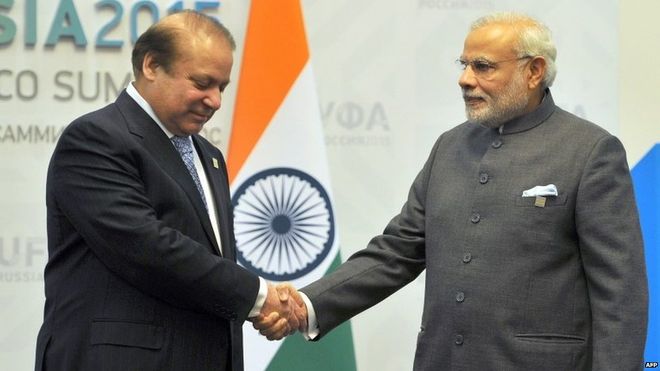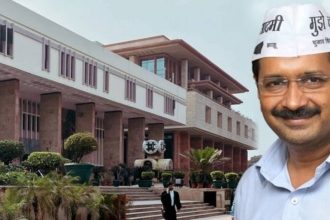New Delhi: Indian Prime Minister Narendra Modi has said it is hard to decide who to speak to about peace in Islamabad. “The first thing is that with whom in Pakistan will you decide the ‘Lakshman Rekha (redlines) – with the elected government or other actors?” Modi said in his first interview with a private Indian media since becoming prime minister in 2014.
“That is why India will always have to be on alert. India will have to be alert every moment. There can never be any laxity in this,” he told Times Now editor-in-chief Arnab Goswami on Monday.
Defining new parameters for resuming talks, Modi said that was the spirit in which he had invited his Pakistani counterpart Nawaz Sharif to visit New Delhi for his inauguration in 2014. It was the same spirit with which he paid a surprise visit to Lahore in December 2015.
Regarding peace negotiations and engagement, the Indian leader said his country always wanted friendly ties with its neighbors and that there was no debate. “We want to live in harmony and peace.”
He said that those entrusted with negotiating must go about their business, and those tasked with defending the borders must fulfill the responsibility entrusted to them.
Modi further said that the single biggest achievement of his government was that it had managed to convince the international community about India’s position. “Now I don’t have to explain to the world about India’s position. The world is unanimously appreciating India’s position,” he added. “It is Pakistan that is finding it difficult to respond.”
“If we had become an obstacle, then we would have had to explain to the world that we are not that obstacle. Now we don’t have to explain to the world. The world knows our intentions,” he said, explaining that the world also accepted India’s argument on terrorism.
“Today, the world has to accept what India has been saying about terrorism. India’s dialogue on terrorism, the losses India has suffered due to terrorism, the losses suffered by humanity, the world is now acknowledging that,” he said, asserting that this was the process India aimed to take forward.
Talking about the failed NSG bid, Modi blamed the hype before the meeting that made the setback seem larger. “My trip to the United States, my speech in their Congress and the respect shown towards India created a lot of hype. Had it not been hyped so much, there would not have been much criticism on the NSG issue.”
Modi said New Delhi had begun a coordinated effort for the NSG membership, including engaging with China. “The first thing is that we have an ongoing dialogue with China, and it should continue to happen,” he said, noting that having similar views was unnecessary to have a conversation.
“I can say that China has been cooperating with India to search for solutions. On some issues, it’s a question of principles for them. On some issues, it’s a question of principles for us. On some issues, they differ from us, and there are issues on which we differ. There are some basic differences. But the most important thing is that we can speak to China eye-to-eye and put forth India’s interests in the most unambiguous manner.”






